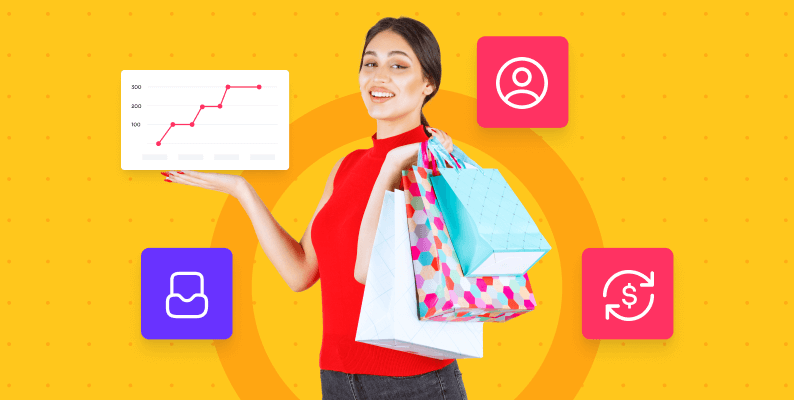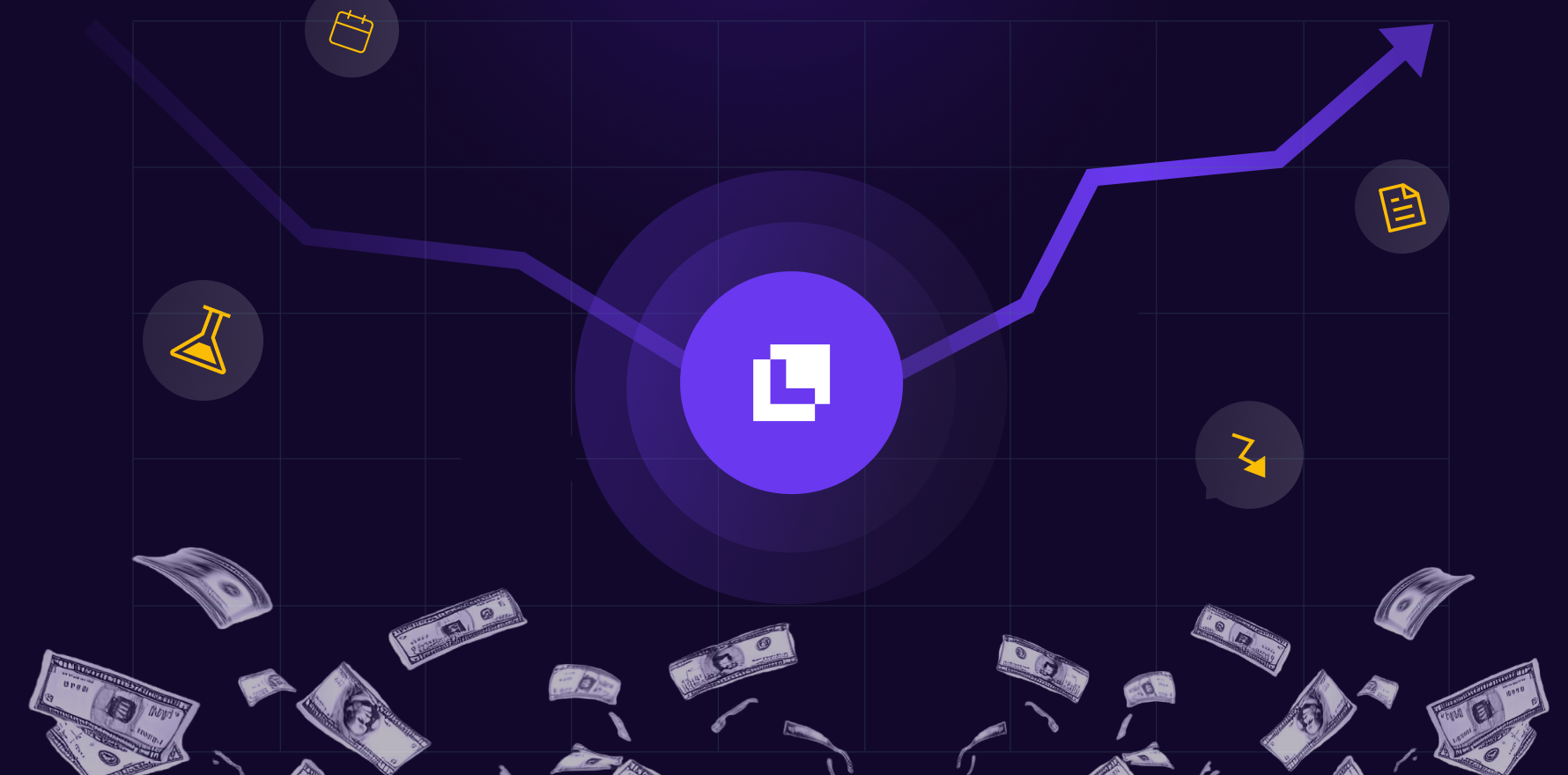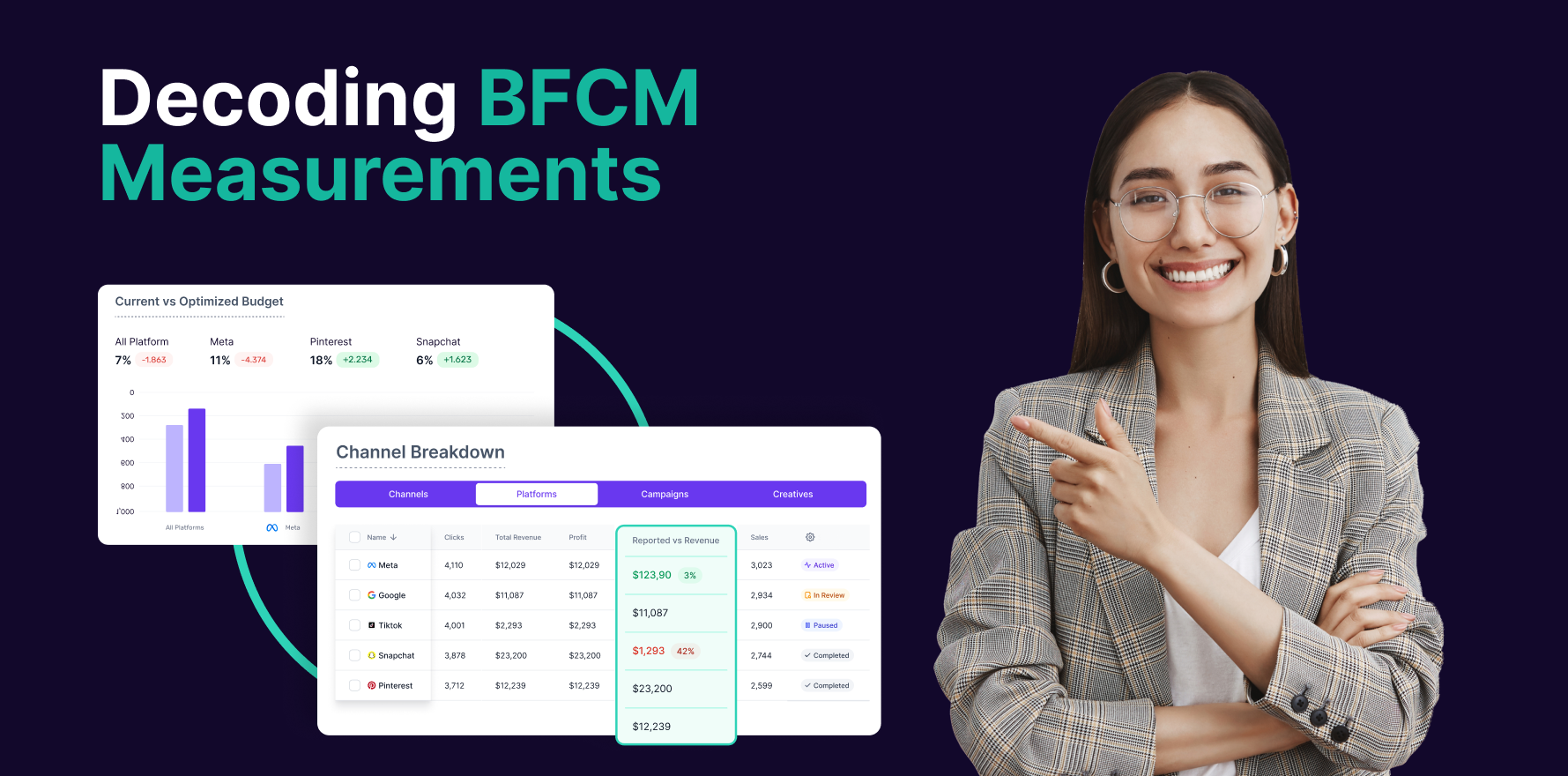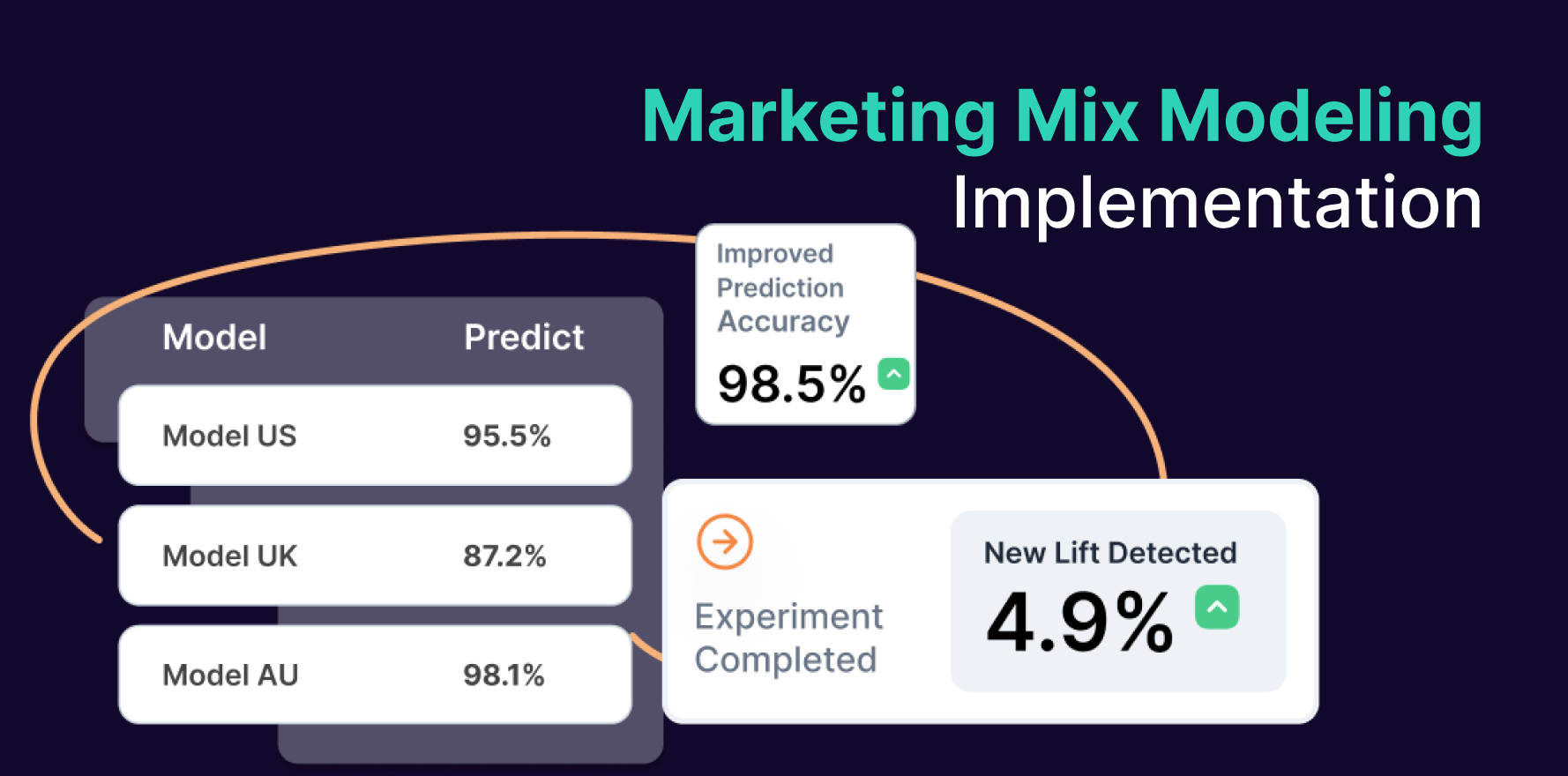In this fiercely competitive market, every DTC and Ecommerce business aims toward more revenue generation. What they end up doing is spending huge amounts on marketing, advertising, and other activities that eventually shoot the customer acquisition costs through the roof.
But, there’s another approach to generating more revenue than only going for an acquisition spree – Average Order Value (AOV). By increasing the average order value for Ecommerce, you can provide more value to your existing customers while generating more revenue on every deal. Using the right strategies to increase your Ecommerce average order value, nudge customers to buy more products, and generate more sales from each order.
In this article, we will deep dive into understanding what average order value is, how to calculate average order value, and examine the factors that influence average order value.
What is average order value and why is it important?
Average order value can be defined as the average amount of money every customer spends when they visit your Ecommerce store.
Average order value formula = Total revenue / Total number of orders
As an example, if your revenue for September month is $50,000 and total orders are 500, then the average order value stands for = 50000/500 = $100
Average order value is considered one of the crucial benchmarks to understand consumer behavior. Through average order value statistics, you can understand whether your average order value is as per the industry standard or not. If not then where it is faltering, which specific products are being sold quite frequently and which are being shelved for a long time, – it provides you with a holistic overview of your business transactions.
The main benefits of knowing the Ecommerce AOV are:
- Improve your sales margin by more revenue recognition
- Recover the customer acquisition costs quickly
- Increase the lifetime value of customers
- Bring more revenue without much customer acquisition and add-on costs
Ecommerce average order value by country and device
Let’s look at the average order value by industry, categories and devices.
As estimated by Dynamic Yield, in September, the average order value has been the highest so far with $129 – 3% more than in August. Over the last 12 months, luxury and jewelry witnessed the highest average order value, with $191, and home & furniture endured the biggest dip at $56.
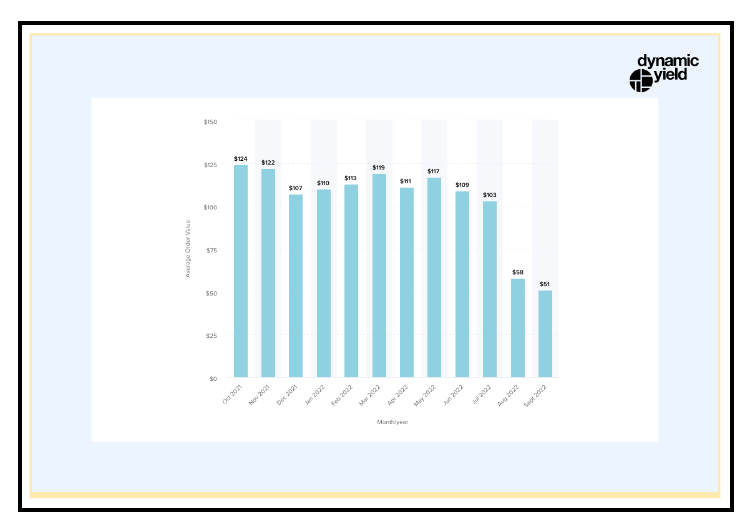
It’s interesting to notice that EMEA has surpassed America in average order value with $105 where America stands at $104, and APAC is not far behind at $99.
Nielsen’s report provides us with a concise overview of how different countries fared in different segments such as:
- South Korea leads in fashion (77%), beauty products (66%), non-food household groceries (52%), packaged grocery food (51%) and fresh groceries (37%).
- But Japan leads in books, stationery, and music purchases, at 79%.
- Spain is at the no.1 spot for travel with 67%.
- Brazil tops the chart in consumer electronics at 57%.
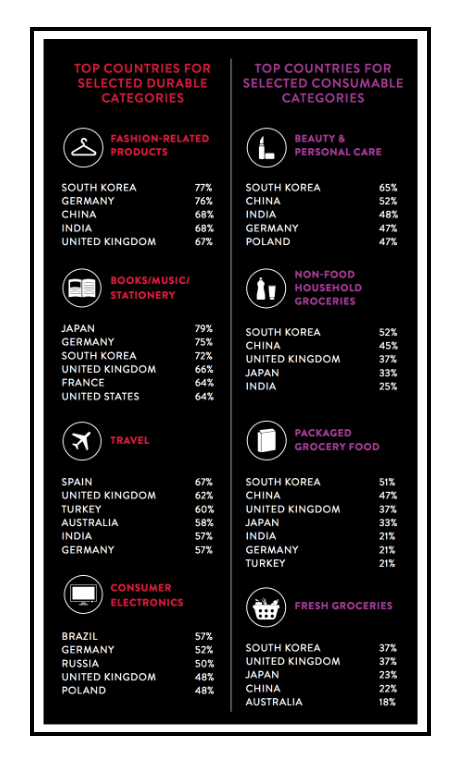
Also, device wise we have witnessed surprising trends overall. In the 2nd quarter of 2022, online orders from desktop had an average order value of $155.75 dollars as compared to $143 dollars last year. In addition, the average order value from mobile was $112 dollars on average, while the tablet secured the lowest value, at less than 100 dollars.
13 Tips to increase average order value for Ecommerce brands
It is paramount for any Ecommerce company’s success to increase the AOV so they can thrive in their respective business.
1) Segment your customers’ list
Categorize your customers based on their spending habits and generate useful insights to increase their spending amount. You can segment your customers using the RFM analysis tool (Recency, Frequency, Monetary) into multiple segments such as Champion, Loyal, Dormant, Seeking attention, and many more.
( ): How recently has the customer purchased a product?
( ): How frequently has the customer made a purchase?
( ): How much is total customer spending?
Focus on the segments which need more engagement to drive up the Ecommerce average order value by upselling and cross-selling with a list of recommended products. Lifesight has an in-built RFM segmentation feature that will help you in targeting these customers better.
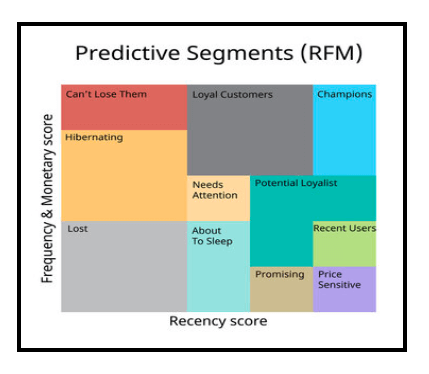
2) Offer bundle deals with discount
Product bundling involves creating and selling curated collections of complementary products that can help capture both casual browsers and eager-to-buy customers.
As per Shopify, sock retailer Soxy.com increased its average order value by 358% using product bundling. Surprisingly, many of its bundles were more expensive than buying the same amount of socks individually.
Offering products in bundles is a good way to increase sales on your Shopify store.
A few reasons for product bundling being a factor that influences average order value is:
- The grouping of items leaves the shopper less focused on the price of individual items
- Helps reduce surplus inventory as you can bundle slow-moving items with popular ones
- It gives customers a chance to try the products they would not have typically purchased as a standalone item
- Serves as an effective means of encouraging trial and habituation
Skincare brand Belif‘s products sell for $76 individually, but in a bundle, the products are priced at $55. What’s notable here is that they’ve named the bundle after the benefits it offers: Skincare solution for dullness and dryness.
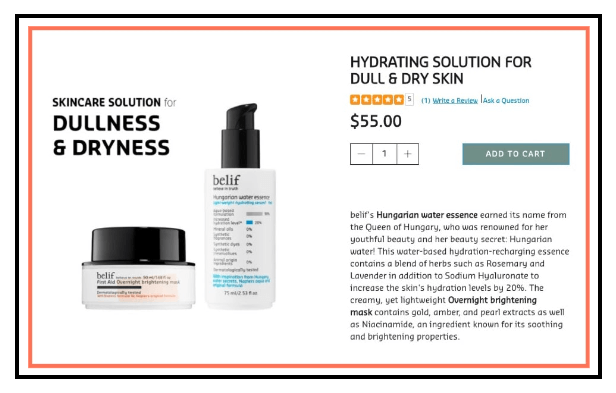
3) Offer a free shipping threshold
Customers hesitate to make a purchase when asked to pay for the shipping charges as it offsets the benefits people receive in online shopping. By just upping your shopping threshold to a certain range, you make your customers buy more on every order.
As an Ecommerce shipping best practice, whenever customers are close to the minimum shopping limit, you could nudge them with a subtle message to add products worth the required amount to eliminate the shipping costs.
DTC brand Parklifedesigns has built an extensive portfolio of pet products and they do provide quality products across the US at a minimum shopping threshold of $75.
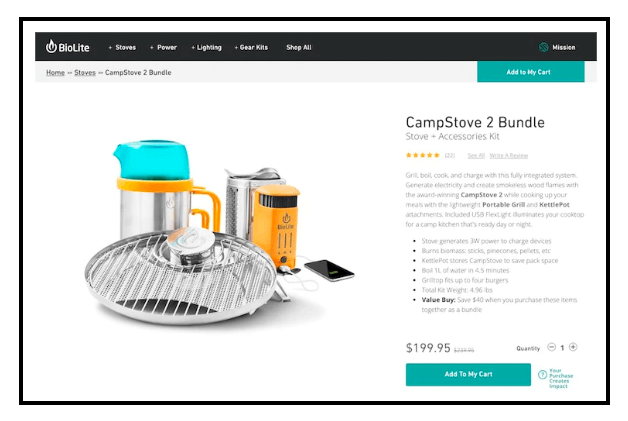
4) Cross-sell at product pages
Cross-selling means selling related or complementary products to an existing customer. Customers would love to pick up some relevant products at the time of purchasing one item which would add value to them. At the same time, you need to be careful of which products to recommend as it has to complement shoppers’ chosen items.
For example, in case you’re about to purchase dog food from the online pet store Chewy.com, they cleverly put a variety of affordable and relevant items on the checkout page like dog toys and pet shampoo, to prompt customers to make an extra purchase.
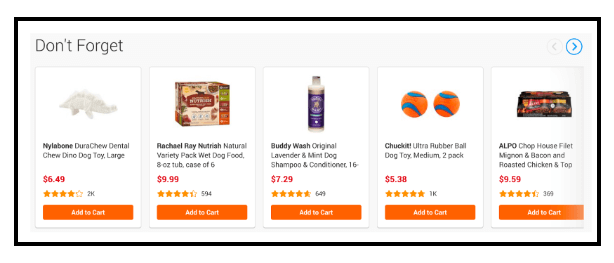
5) Upsell a discounted product at checkout
Upselling means encouraging customers to go for a higher or more expensive version of the product they have already chosen.
A great example would be Proflowers which is a leader in online gift-giving and flower delivery. If a customer chooses to go for the standard bouquet option, at the time of checkout, they would also display other options that are available at a slightly higher price to subtly influence shopping behavior.
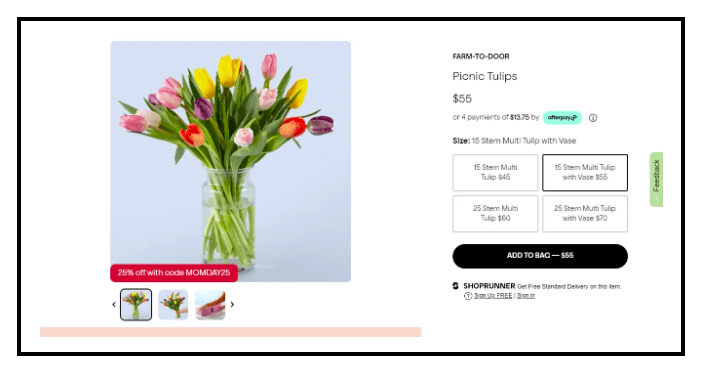
6) Cross-sell and upsell in your email and SMS flow
Upselling and cross-selling through email and SMS are all about maintaining a fine balance between being consistent and not being pushy. The best way to increase your average order value is to add your suggestions to your product confirmation email/SMS.
Your customers would be happy to get the confirmation message from your side and at the same time, wouldn’t be annoyed to get recommendations based on their recent purchases.
Underwear Expert -a leading Ecommerce undergarments provider that eases the decision-making process for customers with relevant product recommendations over email. In the product purchase confirmation email, they utilize the opportunity to interact with the customers and showcase new products or discounts with a clear call-to-action, in a move to increase their AOV.
What’s notable here is how they add a testimonial in the email to increase the customer’s trust.
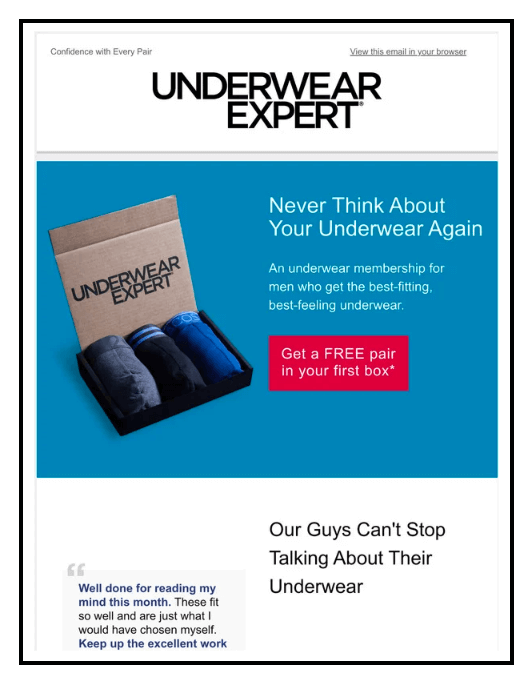
7) Provide subscriptions
The online subscription model is a win-win model where it saves time and effort for the customers and for Ecommerce companies, it gives them a loyal base of customers who can be used for upselling and cross-selling purposes.
Dollar Shave Club has grown its business model by leaps and bounds with its unique subscription models. Dollar Shave currently offers 3 subscription plans to its customers to make it easier for them to purchase. These are “The Humble Twin” (2 blades, 5 razors), “The 4X” (4 blades, 4 razors), and “The Executive” (6 blades, 4 razors).
How to increase the average order value in Ecommerce: As you can see here, each plan clearly lists the benefits the customer can expect.
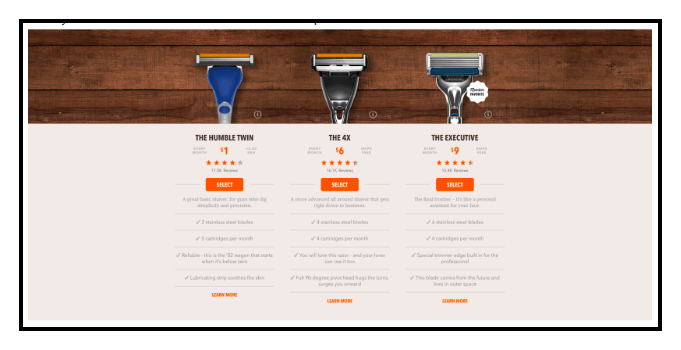
8) Build a loyalty program
Loyalty programs are promoted and sponsored by retailers, to attract, engage and retain customers with special rewards, discounts, and other add-in incentives to increase repeat business. Every time a customer shops from your app/website, they earn a certain number of points which can be redeemed in the form of discounts.
A well-placed DTC customer loyalty program is a great Ecommerce AOV strategy because it helps you build loyal customers and brand enthusiasts who will keep coming for repeated purchases. As per Adobe research, though repeat customers count for only 8% of the total visitors, they hold the lion’s share of the revenue (40%).
Sephora -a leader in cosmetics and beauty products is famous for its loyalty program ‘Beauty Insider’. Their easy-to-use loyalty program gives users a variety of choices right away to choose from. Members earn one point per dollar spent. However, members in higher tiers get higher multipliers and can earn more points (2x, 3x, or even 4x) for the same level of spend.
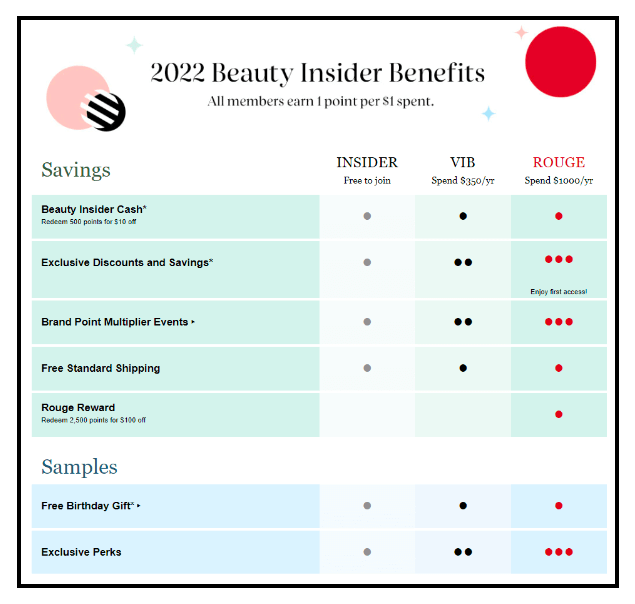
9) Upsell via multiple communication channels
Don’t restrict your communication to your shoppers only to product discounts, order confirmation, and product launches. Instead, leverage multichannel communication to increase your average order value for Ecommerce, including: push notifications, app-inbox, WhatsApp, SMS, email, and many more to engage with and upsell your products to your customers.
A great example would be Harry’s – a prominent men’s grooming product seller. Harry’s keeps their customers up-to-date with the new products over multiple channels including emails, social media, PPC advertising, and beyond.
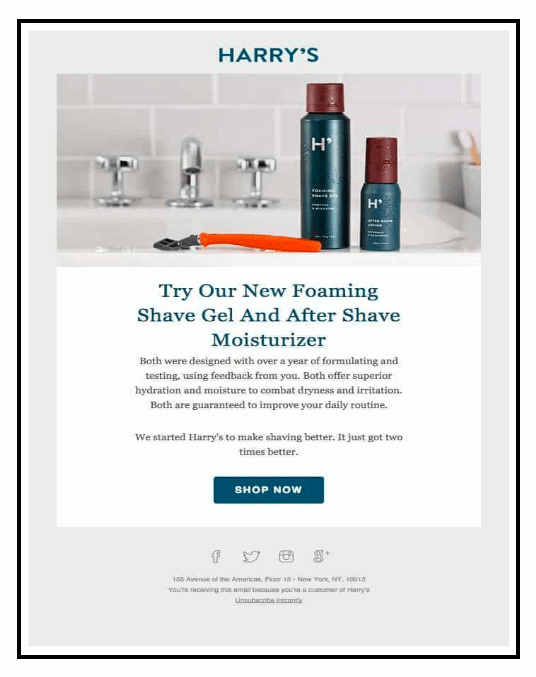
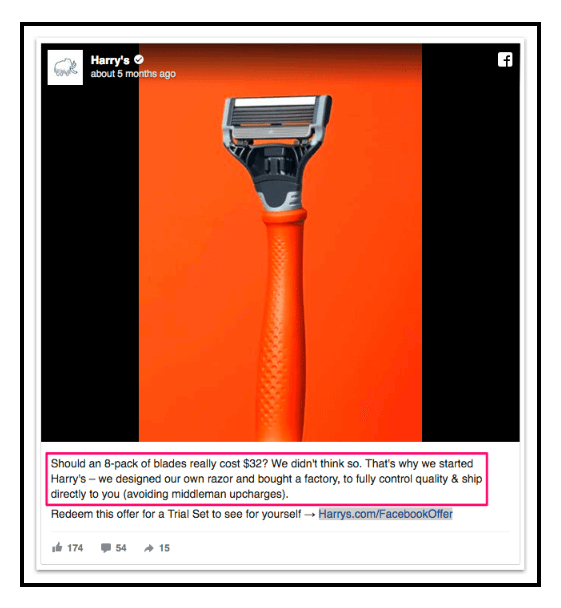
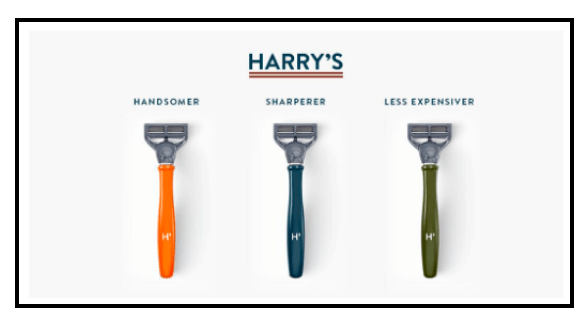
10) Well-crafted welcome emails
A nicely-crafted welcome email gives a vibrant and unique experience to the customers and leaves a lasting impression that influences their shopping behavior even in the future.
While this can be a great tool, you need to be careful about staying on course of welcoming your visitors, rather than drifting apart with hardcore selling.
Glossier -a skincare and cosmetics brand takes this to a whole new level with its customized email messaging. It leaves a remarkable impression on the shoppers’ minds when they visit for the 1st time. Also, the brand’s communication at every stage makes you feel as if you are a part of a loyal DTC brand community.
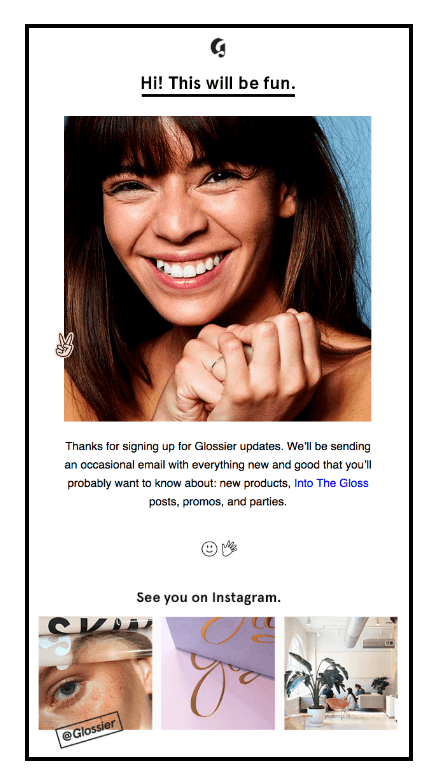
11) Give customers an option to upgrade
Upgrading the existing order to a higher one in terms of quantity or value is a bonus gift that every Ecommerce company wants to go after. You can win a customer’s wallet willingly if you can showcase the direct ROI and positive impact of upgrading to the next option, while increasing your average basket value.
Myprotein -a leading nutrition offering brand offers upgrades by mentioning the number of servings and the savings for every 30 servings. With a saving of $1.33 per 8 servings, it presents a quite lucrative case to the customers to go for higher quantity.
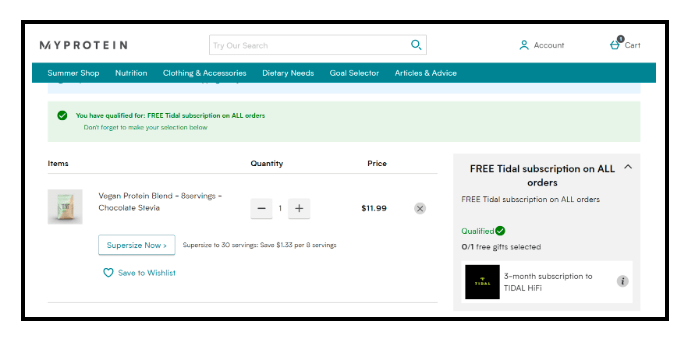
12) Use scarcity marketing
Scarcity marketing is a proven technique used by Ecommerce / DTC brands to invoke a sense of urgency among their shoppers to increase sales numbers. When a product is scarce, it inherently promotes its value proposition and personifies good quality as the product is always in high demand.
According to Psychologist Robert Cialdini – “A product becomes more attractive when its perceived availability is limited.” Therefore, by extension, it must be of outstanding quality. “
While it’s a great stimulant for boosting the average order value, if manipulated, it can backfire quite heavily on your brand’s reputation.
A great example is Secret Sales – a clothing and apparel seller. They don’t unnecessarily or falsely try to create demand, rather they showcase the real-time how long a product would be available for sure in the shopping bag.
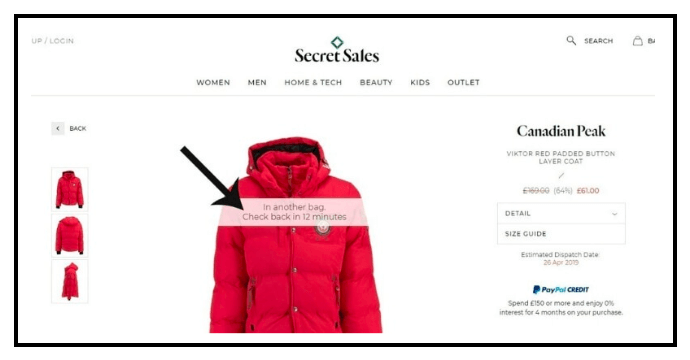
13) Retargeting
According to research, 92% of visitors do not make any purchasing decision while visiting an Ecommerce store for the 1st time. They need constant nurturing and engagement to take the first leap forward.
Adhering to the mere-exposure effect, we tend to start liking a product if we see it more. With a 76% higher response rate than normal ads, retargeting your existing visitor or customer base can help your Ecommerce or Shopify store boost the average order value.
A great example would be Instacart – which retargets its audience with a gentle nudge at every stage of its purchasing journey in multiple channels. It prompts the target audience to reevaluate their decision and in most cases, they end up buying them.
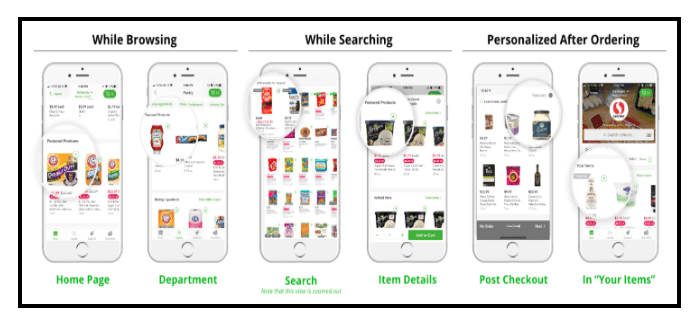
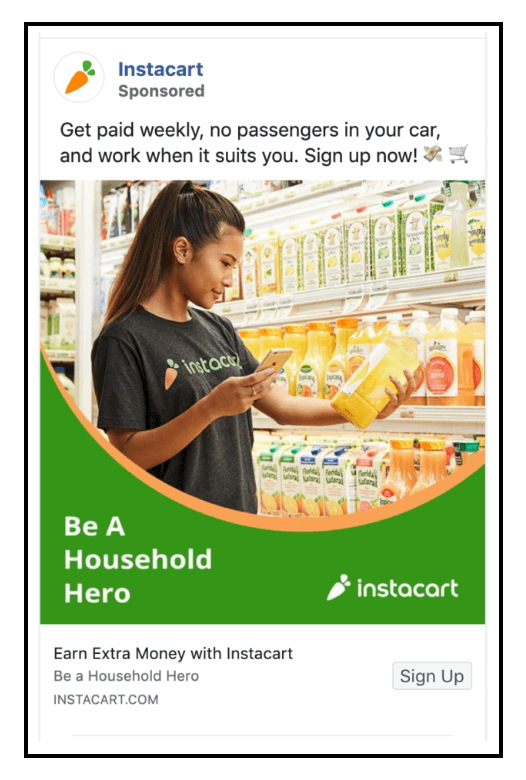
Final thoughts
Though there are multiple ways to increase the average order value, Ecommerce companies’ utmost priority would be to focus on their customer experience. Customers prefer to shop from brands they trust. If your customer engagement and retention are great and seamless, the enhanced average order value is an assured outcome.
You may also like
Essential resources for your success
